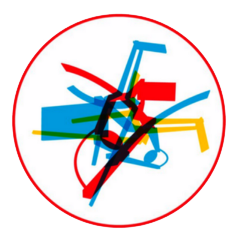With the Out of the Cradle ‘2018 we aim to contribute to the existing outer space activities more citizen-centred perspectives. We are going to develop a public interface between established domains, interdisciplinary missions to advocate non established humanistic and social studies beyond Earth’s atmosphere and showcase human space activities as a cultural and not only technological venture.
Anticipated outcomes:
Socially relevant outer space scenarios and visions from which more focused, dedicated and relevant activities could be developed.
The community of aligned institutions and individuals with the capacity to collaborate on mutual projects.
Identified topics for future cooperation.
Participants: Roberto Cassar (Leiden University), Angelo Vermeulen (TU Delſt), Bernard Foing (ESTEC, Noordwijk) , Claudia Mignone (ESTEC, Noordwijk), Evelina Domnitch & Dmitry Gelfand (Synergetica), Marteijn Leinweber (Space Business Innovation Center Noordwijk), Thieme Hennis (Astroplant, Border Sessions) and Wael Bazzi (Exosphere, museum of cosmology).
Early on it was recognised that we should redefine or at least rethink the citizens and the humankind. As we are leaving the Earth, who do ‘we’ represent in outer space—only citizens or humanity, or “life” as such? If it is so, then the technological approach should be updated with more ecological, based on the quality of relations and not just capabilities of an individual “species”. That also brings to the question of the language and the mutual code, since existing social and mathematical language would also require a biosemiotic update that is in its becoming through the evolution of cybernetics.
On more concrete but related matter OotC’18 recognised a need for co-creation platforms that would support inclusive citizen-centred activities, like Astroplant project, developed as an ESA citizen science project, but evolving into a composite spin-off, fusing scientific, societal and educational impact.
Platforms as hybrid networks provide development of connected capacities, facilities and resources— and as such a recognition of the cultural impact of outer space activities.

